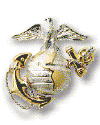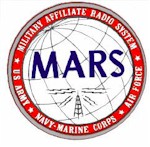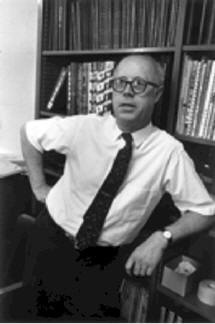|
|
Lemuel Dary Wright Navy Marine Corps MARS 1 Mar 1913 - 12 May 1995
|
|
|
W5FBI |
|
Click to enlarge |
|
Lemuel Dary Wright, Lem to his friends, was born in Nashua, New Hampshire, on March 1, 1913, to Clarence Herman Wright and Avis Caroline Dary Wright. His father was an accountant who had his own firm, and his mother was an accomplished amateur artist who painted landscapes of lovely New England scenes. Lem attended public elementary school and high school in Nashua. Lem was the oldest of four children. Lem received a B.S. degree in 1935 and an M.S. degree in 1936 in chemistry at the University of New Hampshire. He spent a year at Pennsylvania State University in 1936–37 as a graduate assistant in agricultural biochemistry, but he completed his graduate work at Oregon State College, where he received his Ph.D. in 1940. With a Rockefeller Foundation fellowship, Lem was a postdoctoral fellow at the University of Texas. While in Austin, he met and married Ernestine Quarles, who was technical assistant to R. R. Williams. Lem and Ernestine had five daughters, Carolyn, Martha, Priscilla, Barbara, and Nancy. The extended family eventually included 10 grandchildren. Ernestine became a highly respected mathematics and science teacher in the Ithaca City School System. His first academic appointment was in the Department of Microbiology at the Medical School of the University of West Virginia in Morgantown. Next he accepted an appointment at Sharpe and Dohme laboratories in Glenolden, Pennsylvania, in 1942. He held positions of biochemist, director of microbiological research, and assistant director of pharmaceutical research while at Sharpe and Dohme. In 1956, Lem moved to Cornell to become professor of biochemistry and nutrition. In recognition of his highly productive career, he was awarded a research career award from the National Institutes of Health, that supported his position until he retired from Cornell in 1978. He spent a sabbatical leave from Cornell in 1968 at the Max-Planck Institute in Munich, Germany. He published more than 200 papers during his active research career, and he contributed extensively to reviews dealing with microbiological methods and vitamin determination in a number of edited volumes in this area. 1958, - Borden Award from the American Institute of Nutrition 1969 - Outstanding Achievement Award from the College of Technology of the University of New Hampshire 1978 - Alumni Association Certificate of Recognition from Cornell's College of Agriculture and Life Sciences 1978 - Elected an emeritus professor of nutritional biochemistry at Cornell 1980 - Certificate in clinical chemistry from the American Board of Clinical Chemistry 1983 - Fellow of the American Society for Nutritional Sciences Lem was in many ways the quintessential New Englander, with his rock-solid integrity, dry wit and taciturn ways. For the younger faculty who often tried to penetrate his Yankee reserve with pranks, he was a fun colleague. He loved apples and would eat them core, seeds and all. He also loved pickles, and one day his colleagues added an enormous amount of salt to his plate of pickles when Lem was looking elsewhere. To the amazement of his luncheon partners, he ate the pickles without a word or change in expression. His New England common sense and reserve also were stabilizing influences on his younger colleagues during the difficult years of student unrest at Cornell in the late 1960s. Lem enjoyed skiing, especially on Mount Hood when he was a student at Oregon State, and he loved climbing in the New Hampshire Mountains. He played a baritone in a National Guard band in his early years, and he later played the flute in a community band. He was also an accomplished photographer who used his laboratory skills to develop and print his own pictures. His most important hobby, however, was ham radio. During the Vietnam war, he was a member of the Navy Military Affiliate Radio System, that relayed messages to servicemen in Vietnam through a telephone patch to his radio. In 1972, he spent more than a week in Elmira, New York, during a major flood to help coordinate emergency services. |
Semper Fidelis
Non sibi sed patriae



